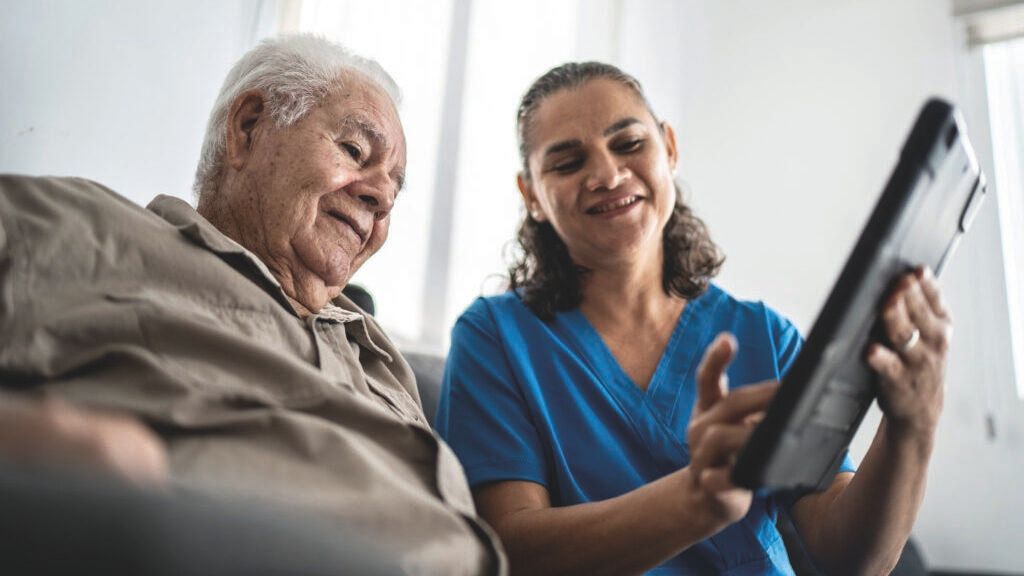A guide to recruiting from overseas

With the current recruitment crisis in the social care sector and changes last year to enable care workers to be sponsored, more care providers are now looking to fill vacancies with overseas workers. Olivia Coles, employment solicitor in the Health & Social Care team at RWK Goodman, provides some key information for providers taking this route.
How can care providers recruit care workers from overseas?
The first step for care providers is to obtain a sponsor licence from the Home Office. The application process consists of an online application form, cover letter, supporting documents and a hierarchy chart.
The Home Office will check that the care provider is registered with CQC. It will also review the application and supporting documents and assess whether the care provider has shown that it’s a genuine business, has genuine vacancies that meet the requirements for sponsorship and the workers they intend to sponsor are suitable.
What type of licence and which immigration route?
Care providers should obtain a skilled worker sponsor licence for sponsoring overseas workers via the skilled worker route.
Which roles can be sponsored?
Care workers, senior care workers and nurses are all eligible for sponsorship. When applying to sponsor an overseas worker, the care provider must include the most appropriate Standard Occupational Classification (SOC) code for the role. The SOC codes for the key roles are:
- care workers 6145
- senior care workers 6146
- nurses 2231
It’s important that you choose the right SOC code based on the day-to-day duties that the role involves, rather than your internal job title. You can use the ONS occupation coding tool (ONS Occupation Coding Tool (onsdigital.github.io)) to find the full description of each role, to help choose the correct SOC code.
How to obtain and assign a Certificate of Sponsorship (CoS)
Once a care provider has obtained a sponsor licence, and identified the appropriate SOC code for the role, they will need to obtain and assign a CoS to the new recruit. A “defined” CoS is needed for new recruits who are applying from overseas and an “undefined” CoS needed for new recruits who are already in the UK.
You can apply for either CoS through your online portal (the SMS), or you may have been given an allocation of undefined CoS when your licence was granted. Once you’ve assigned the CoS, you need to give a copy of it to your new recruit to use with their visa application.
What type of visa will the new recruit need?
The Health and Care Visa is a special type of skilled worker visa that most care workers, senior care workers and nurses will be eligible for.
The Health and Care Visa has a significantly lower application fee (now £284 – £551) and the applicant is exempt from paying the Immigration Health Surcharge (currently £624, but increasing shortly to £1035, per year of sponsorship). The application should also be processed more quickly.
Sponsored workers under the Health and Care Visa will need to meet the English language skills requirement, which they will often do by sitting an English language test in their home country. They are permitted to bring their partners and children with them to the UK and will usually be able to apply for settlement after five years.
What are the salary requirements?
Care workers and senior care workers must be paid at least an annual salary of £20,960 and an hourly rate of £10.75.
There are different requirements for nurses as they must also be paid in line with NHS pay bands. There are also different requirements for pre-registered nurses as they are allowed to be paid a reduced salary for a limited time until they achieve registration with the NMC.
How much are the fees?
The sponsor licence application fee is currently £1,476 (or £536 for small or charitable employers). Once you’ve obtained your licence, you will need to pay £239 each time you assign a CoS to a worker. You will also usually have to pay the Immigration Skills Charge, which is currently £1,000 (or £364 for small or charitable employers) per year of sponsorship.
Duties to the Home Office
The Home Office imposes a number of compliance duties on sponsor licence holders. It will check that care providers are complying with these duties by carrying out compliance visits. Once you have your licence, you need to be aware of your compliance duties and ensure that you are meeting these to avoid your licence being revoked. If you were to lose your licence then you would have to stop employing any sponsored workers and you would not be able to sponsor any new recruits.
Olivia Coles is an employment solicitor in the Health & Social Care team at RWK Goodman.




